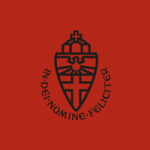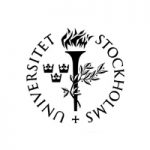项目介绍
The Centre for International Conflict Analysis and Management (CICAM), part of the Department of Political Science at Radboud University, is looking for a postdoctoral researcher to work on the ’Women’s Groups and Post-Conflict Development’ project led by Dr Shelli Israelsen, the project’s principal investigator (PI).
The project investigates how women’s groups navigate the challenges of conflict/post-conflict environments to promote women’s political and economic development. The project seeks to: (1) identify the conditions under which women’s groups form in the post-conflict period; (2) determine the factors that make some women’s groups more effective than others in advocating for women’s issues; (3) analyse how women’s groups’ membership profiles (e.g. former female combatants vs. civilian women), organisational structure, and goals affect group efficacy and; (4) ascertain how differences in wartime vs. peacetime dynamics affect relations among different women’s groups and hinder/promote their ability to represent women’s interests.
You will conduct research on the impact of women’s groups in promoting women’s participation in post-conflict society using qualitative methods to analyse data you will help collect while doing field research in any of the conflict/post-conflict countries in Southeast Asia (Myanmar/Thailand, Indonesia, the Philippines, etc.) and/or Sri Lanka.
You will conduct this research both independently and in collaboration with the project team, which includes Dr Shelli Israelsen as project lead/principal investigator and a PhD candidate who will start in late 2025. You will write and co-author academic publications, help organise workshops and participate in academic conferences with other project team members.
You will help with knowledge sharing and outreach in the project and help train the PhD candidate in appropriate theory and methods. You will also help create and facilitate opportunities for Master’s degree research (e.g. postgraduate theses) within the project, and contribute to departmental teaching/supervision within the range of your expertise.
Ultimately, the project aims to identify best practices for women’s groups in their goal to help create politically active and economically independent women in post-conflict societies.
This postdoctoral researcher position involves 20% teaching duties (including thesis supervision).
Profile
Requirements:
- You have a PhD in Political Science, International Relations or Conflict Studies (or a related discipline).
- Your research interests include women and conflict, women-led peacebuilding, women and post-conflict development and/or women and political participation, as evidenced by articles published in peer-reviewed journals and/or conference presentations.
- You have a strong command of qualitative research methods, including interviews, focus groups and discourse/content analysis.
- You have experience collecting data and conducting research in post-conflict societies in Southeast Asia (Myanmar/Thailand, Indonesia, the Philippines, etc.) and/or Sri Lanka.
- You are fluent in English (excellent oral and written communication skills).
- You can work both independently and in a team.
- You are able to teach classes related to gender and conflict, the politics of Southeast Asia, and/or political science methods (broadly defined).
Desirables:
- You have conducted field work in countries in Southeast Asia that are experiencing or have experienced conflict, particularly Myanmar/Thailand and/or Sri Lanka.
- You are fluent in a language spoken in any of the post-conflict countries in Southeast Asia and/or Tamil/Sinhala.
- You have experience teaching and supervising undergraduate students.
We are
The Nijmegen School of Management (NSM) enables students, institutions and companies, societal actors and governments to play their part in a transformation towards sustainable societies. In doing so, the faculty is committed to Radboud University’s mission of contributing to a healthy, free world with equal opportunities for all.
In the context of our ‘responsible governance for sustainable societies’ mission, we address scientific and societal challenges. Our work focuses on the topics beyond economy, climate, inclusivity, safety, and democracy.
At the Nijmegen School of Management, academic research and teaching are carried out in challenging educational programmes. These programmes are offered in the areas of business administration, economics and business economics, geography, planning and environment, political science, and public administration. Academic research takes place within the Institute for Management Research (IMR). Research is carried out within the above-mentioned domains and in interdisciplinary research groups: the hotspots. NSM currently has 350 FTE staff and approximately 5,000 students.
The Political Science Chair group involves two Chairs: that of Empirical Political Science and that of International Relations, which includes Peace and Conflict Studies. The Chair group offers a Bachelor’s degree programme in Political Science and six Master’s degree tracks, each leading to a Master’s degree in Political Science. The educational programme is characterised by small-scale teaching and provides a stimulating learning environment with an emphasis on the development of academic skills.
You will be based at the Centre for International Conflict Analysis and Management (CICAM), which is part of the Chair group of Peace and Conflict Studies at the Department of Political Science. CICAM is a multidisciplinary institute, conducting academic research and offering education in the field of conflict, peace and intervention in conflict-affected settings, aimed at students across Radboud University. CICAM actively engages in societal services regarding these themes (creating awareness, informing, advising).
The research activities of the Nijmegen School of Management fall under the responsibility of the interdisciplinary Institute for Management Research (IMR). Under the motto ‘responsible governance for sustainable societies’, IMR focuses on academic research into the development, design and effectiveness of the public and private structures that regulate, govern or manage human interactions.
The academic debate is organised in the IMR Academy; the PhD programme is organised in the IMR Doctoral School. In addition to the interdisciplinary research programme on responsible organisation, there are six multidisciplinary research groups at IMR, which are linked to strategic and scientifically and societally relevant issues. IMR also hosts the individual decision lab and the group decision lab, which are particularly suited for studying collaboration in complex contexts and collective decision-making.
Radboud University
At Radboud University, we aim to make an impact through our work. We achieve this by conducting groundbreaking research, providing high-quality education, offering excellent support, and fostering collaborations within and outside the university. In doing so, we contribute indispensably to a healthy, free world with equal opportunities for all. To accomplish this, we need even more colleagues who, based on their expertise, are willing to search for answers. We advocate for an inclusive community and welcome employees with diverse backgrounds, cultures, and perspectives. Will you also contribute to making the world a little better? You have a part to play.
If you want to learn more about working at Radboud University, follow our Instagram account and read stories from our colleagues.
Nijmegen School of Management
At Nijmegen School of Management, one of the seven faculties within Radboud University in the Netherlands, we have a clear aim: we enable students, institutions and companies, social actors, and governments to play their part in the transformations towards a sustainable society through high-quality scientific research and education. With more than 4,500 curious students and more than 450 dedicated employees, we form a dynamic community.
Our mission ‘Responsible governance for sustainable societies’ is driven by the ambition to make a difference in the world. At Nijmegen School of Management, we understand management as a broad concept referring to the collective and organised pursuit (responsible governance) of a better world (sustainable societies). We study and teach management at the level of public and private organisations. In this context, we examine how to balance economic, ecological, and social values in a sustainable way. This aim is in line with Radboud University’s mission to contribute through teaching and research to a ‘free, healthy world with equal opportunities for all’.
At Nijmegen School of Management, academic research and teaching are carried out in following areas: Business Administration, Economics and Business Economics, Political Science, Public Administration, Human Geography, Spatial Planning, and Environment. Our approach to teaching and research is evolving from multidisciplinarity, where we study societal challenges from different disciplinary backgrounds, to interdisciplinarity (integrating disciplinary perspectives for synergy) and transdisciplinarity (involving non-academic stakeholders).
The United Nations’ Sustainable Development Goals (SDGs) are an important source of inspiration for our work. Our work focuses on the themes Social economy, Resilient society and Sustainable environment. At Nijmegen School of Management, we have our eyes on the world of the future, in which sustainability and responsibility are central values. Together we are creating a better world for everyone.
We offer
- We will give you a temporary employment contract of 2 years.
- Your salary starts at € 4,227gross per month (salary scale 10, step 5) and progresses further within salary scale 10. The amounts in the scale are based on a 38-hour working week.
- You will receive an 8% holiday allowance and an 8,3% end-of-year bonus.
- You will be able to use our Dual Career and Family Support Service. The Dual Career Programme assists your partner via support, tools, and resources to improve their chances of independently finding employment in the Netherlands. Our Family Support Service helps you and your partner feel welcome and at home by providing customised assistance in navigating local facilities, schools, and amenities. Also take a look at our support for international staff page to discover all our services for international employees.
- You will receive extra days off. With full-time employment, you can choose between 30 or 41 days of annual leave instead of the statutory 20.
Additional employment conditions
Work and science require good employment practices. Radboud University’s primary and secondary employment conditions reflect this. You can make arrangements for the best possible work-life balance with flexible working hours, various leave arrangements and working from home. You are also able to compose part of your employment conditions yourself. For example, exchange income for extra leave days and receive a reimbursement for your sports membership. In addition, you receive a 34% discount on the sports and cultural activities at Radboud University as an employee. And, of course, we offer a good pension plan. We also give you plenty of room and responsibility to develop your talents and realise your ambitions. Therefore, we provide various training and development schemes.
相关项目推荐
KD博士实时收录全球顶尖院校的博士项目,总有一个项目等着你!





